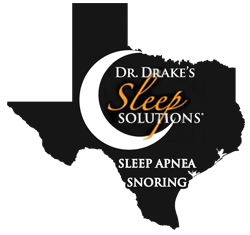09 Nov Oral Appliance Side Effects: Preventing Bite Changes and Jaw Soreness
 Using an oral appliance, especially mandibular advancement devices, has become a popular alternative to CPAP for many patients with mild to moderate sleep apnea.
Using an oral appliance, especially mandibular advancement devices, has become a popular alternative to CPAP for many patients with mild to moderate sleep apnea.
While these devices can help relieve airway obstruction, they also carry risks, notably oral appliance side effects such as bite change from an oral appliance and jaw soreness from a sleep apnea device.
Being aware of these risks and acting promptly can help mitigate long-term issues and ensure that the therapy remains both effective and comfortable.
Understanding Common Side Effects
Early in therapy, many users experience discomfort. Jaw soreness, tenderness in the temporomandibular joint (TMJ), and soreness in the chewing muscles are among the most frequently reported issues.
These symptoms often resolve within days to weeks, especially with proper adjustment and monitoring from a qualified sleep dentist. Patients who understand that these side effects may occur are better prepared to address them quickly and avoid unnecessary worry.
Another key risk is bite change from an oral appliance. Over time, the oral appliance exerts constant forces on your teeth, shifting your jaw posture and changing the positions of your teeth. In this way, the appliance can reduce overjet or overbite and subtly alter how your upper and lower teeth meet when your mouth is closed.
Long-term users may gradually notice dental changes if they skip regular monitoring. Dentists commonly group these changes under oral appliance side effects, and although they can cause concern, early intervention makes a significant difference.
How to Help Prevent or Mitigate Side Effects
There are several things you can do to help prevent or ease oral appliance side effects.
Custom titration and gradual advancement
Advancing the device in small increments rather than aggressively moving the jaw forward can help the jaw and teeth adapt more comfortably.
Morning occlusal guides
Using bite registrations or morning occlusal guards can reduce bite drift and morning discomfort.
Jaw exercises and stretching
Gentle stretching, massage, and relaxation techniques can ease muscle tension and help the TMJ adjust over time.
Regular follow-ups and dental monitoring
Seeing a dental sleep specialist every few months is essential for detecting early signs of bite alteration or jaw discomfort before they become permanent.
Limiting extreme protrusion
Overextending the jaw forward can increase strain. Staying within a tolerable range balances therapy effectiveness with patient comfort and long-term safety.
When to Seek Help
If you notice persistent jaw soreness, especially in the mornings, or detect a shift in your bite, contact your treating dentist or sleep specialist immediately. Your dentist can help you reverse or minimize many side effects.
If you’d like more information about oral appliance side effects in Schertz, TX, Dr. Drake’s Sleep Solutions is a trusted source for guidance and care. Visit Dr. Drake’s Sleep Solutions for expert help and personalized support.


